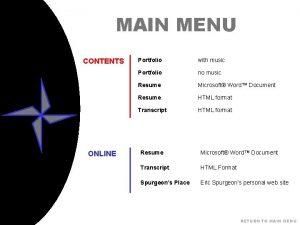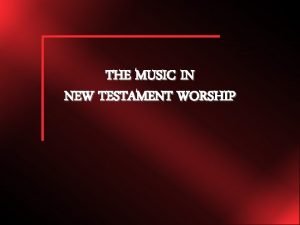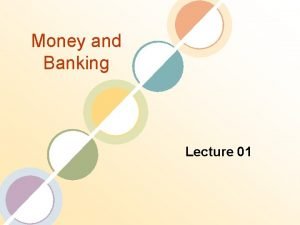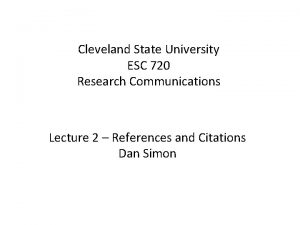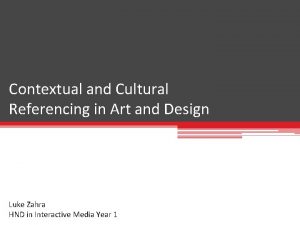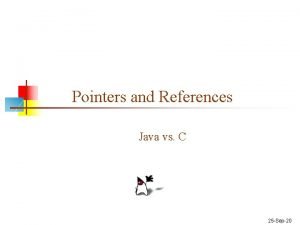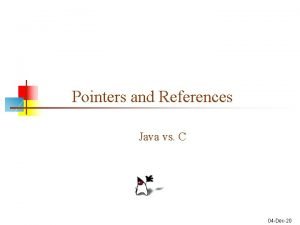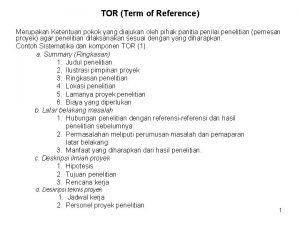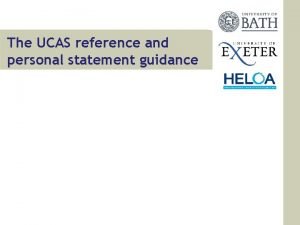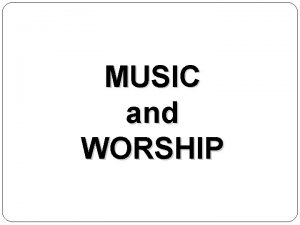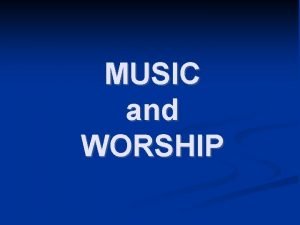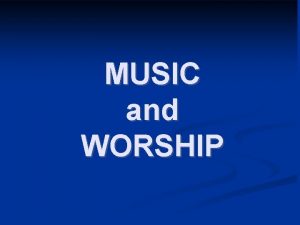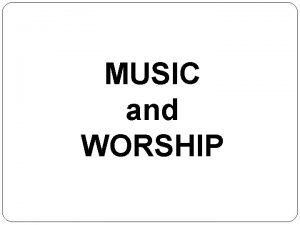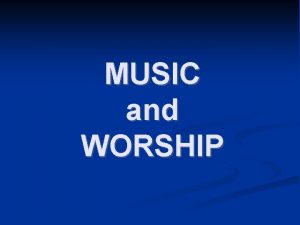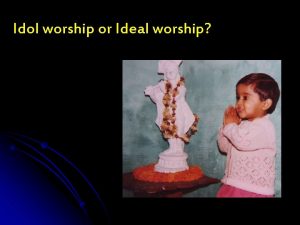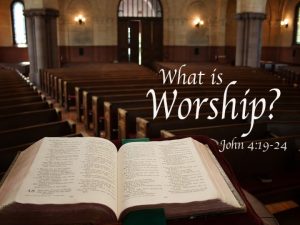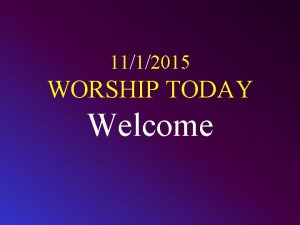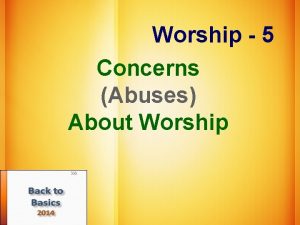MUSIC and WORSHIP Music and Worship I References














- Slides: 14

MUSIC and WORSHIP

Music and Worship I. References II. Technical Development A. Musicology B. Beauty C. Physiology of Music III. Biblical Development A. Directive/Descriptive/Principle B. Textual Exposition IV. Sacred Music—Standards and Hymnody V. FAQs VI. Summary/Conclusion

Standards A. Content B. Arrangement C. Instrumentation

Rationale Against Instruments in Worship 1. Associated with Pagan Worship 2. Associated with Excessive Emotion 3. Associated with the Mosaic Law 4. Associated with Catholic Pomp 5. Unspiritual

Rationale Against Instruments in Worship 1. Associated with Pagan Worship 2. Associated with Excessive Emotion 3. Associated with the Mosaic Law 4. Associated with Catholic Pomp 5. Unspiritual

Rationale Against Instruments in Worship 1. Associated with Pagan Worship 2. Associated with Excessive Emotion 3. Associated with the Mosaic Law 4. Associated with Catholic Pomp 5. Unspiritual

Rationale Against Instruments in Worship 1. Associated with Pagan Worship 2. Associated with Excessive Emotion 3. Associated with the Mosaic Law 4. Associated with Catholic Pomp 5. Unspiritual

Rationale Against Instruments in Worship 1. Associated with Pagan Worship 2. Associated with Excessive Emotion 3. Associated with the Mosaic Law 4. Associated with Catholic Pomp 5. Unspiritual

www. bible. ca John Calvin (1509 -1564) “Musical instruments in celebrating the praises of God would be no more suitable than the burning of incense, the lighting of lamps, and the restoration of the other shadows of the law. The Papists therefore, have foolishly borrowed, this, as well as many other things, from the Jews. Men who are fond of outward pomp may delight in that noise; but the simplicity which God recommends to us by the apostles is far more pleasing to him. Paul allows us to bless God in the public assembly of the saints, only in a known tongue (I Cor. 14: 16). What shall we then say of chanting, which fills the ears with nothing but an empty sound? ”

Rationale Against Instruments in Worship 1. Associated with Pagan Worship 2. Associated with Excessive Emotion 3. Associated with the Mosaic Law 4. Associated with Catholic Pomp 5. Unspiritual

www. bible. ca John Chrysostom, Archbishop of Constantinople excerpt from late 4 th Century writings “David formerly sang songs, also today we sing hymns. He had a lyre with lifeless strings, the church has a lyre with living strings. Our tongues are the strings of the lyre with a different tone indeed but much more in accordance with piety. Here there is no need for the cithara, or for stretched strings, or for the plectrum, or for art, or for any instrument; but, if you like, you may yourself become a cithara, mortifying the members of the flesh and making a full harmony of mind and body. For when the flesh no longer lusts against the Spirit, but has submitted to its orders and has been led at length into the best and most admirable path, then will you create a spiritual melody. ”

www. insearchofthetruth. org Charles Spurgeon (1834 -1892) “'Praise the Lord with the harp. ' Israel was at school, and used childish things to help her learn. But in these days, when Jesus gives us spiritual food, one can make melody without strings and pipes. We do not need them. They would hinder rather than help our praise. Sing unto Him! This is the sweetest and best music. No instrument is like the human voice. . ”

David E. Pratte “Instrumental Music in Worship: Does God Want Singing or Playing Instruments? ” gospelway. com “Instruments lend themselves to outward ceremony, emphasis on physical sound and beauty, and admiration of the technical skill of the musicians. All this is described in the Old Testament references to instruments. “People who use instruments today likewise emphasize the outward beauty of the sound. They invent great rituals involving them, they deliberately invite and honor talented players, they create theatrical productions to attract crowds, etc. The end result is an effort to please the carnal, fleshly desires of the people for physical beauty. “This is inherent in the nature of instruments, not just an abuse of them. Where they are used, this will eventually invariably happen, because instruments have no spirit! They are physical objects used simply for the outward effect of physical sounds. There is no other purpose for them. They take the emphasis off inner, spiritual qualities and put it on the outer quality of the physical sound. By their very nature, they always have and always will emphasize that which is outward and physical. In short, instrumental praise was well suited to a period of 'carnal ordinances. ' They do not suit the 'time of reformation' now that it has come. “The New Testament is a spiritual covenant with spiritual emphasis, especially in our worship. In the Bible, spiritual is the opposite of physical. It is that which relates to God, eternal life, and salvation from sin. It is based on obedience to God's word. . . While the New Testament worship involves some outward activities, the emphasis is on the inner man. . ”

Rationale Against Instruments in Worship 1. Associated with Pagan Worship 2. Associated with Excessive Emotion 3. Associated with the Mosaic Law 4. Associated with Catholic Pomp 5. Unspiritual
 Online music portfolio
Online music portfolio Music in new testament
Music in new testament Five core principles of money and banking
Five core principles of money and banking Difference between bibliography and references
Difference between bibliography and references Difference between reference and bibliography
Difference between reference and bibliography Contextual references in art and design
Contextual references in art and design How do 6 figure grid references work
How do 6 figure grid references work (acv-s03) homework - addresses and references
(acv-s03) homework - addresses and references & vs * in c
& vs * in c Types of references and examples
Types of references and examples & vs * in c
& vs * in c Reference in cv
Reference in cv Term of reference (tor) 1972
Term of reference (tor) 1972 Personal statement
Personal statement References for risk management
References for risk management
